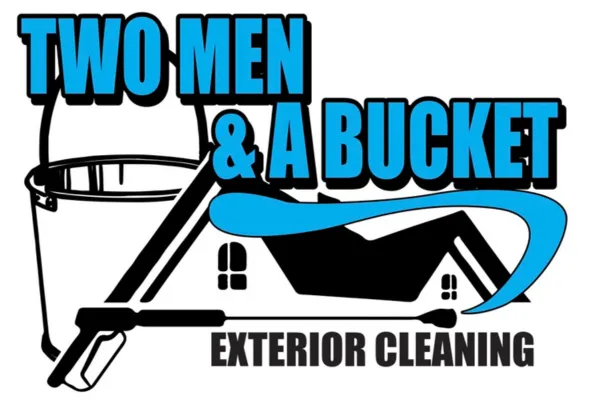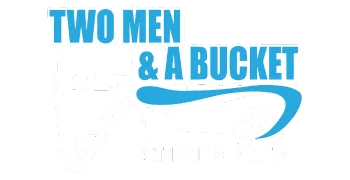Have Questions?
Checkout our blog you'll probably find the answer...

How Does Weather Affect Exterior Cleaning?

Two Men and A Bucket's Website
PHONE: 314-761-9049
EMAIL: twomenexteriors@gmail.com
More On Soft Washing Here!
Learn more on why you should soft wash instead of pressure wash here!
How Does Weather Affect Exterior Cleaning?
Exterior cleaning is crucial for maintaining the beauty and longevity of your property. Whether it's your home's siding, driveway, or windows, regular cleaning helps protect surfaces from damage caused by dirt, grime, and pollutants. However, the weather plays a pivotal role in determining not only when to clean but also how effective the cleaning will be. Each type of weather—from sunny days to freezing temperatures—affects the exterior cleaning process and results in unique ways.
In this blog post, we’ll dive into how different weather conditions can impact exterior cleaning, when the best times are to schedule services, and what precautions are necessary for each type of weather.
The Role of Weather in Exterior Cleaning
Why Weather Matters
Weather conditions are more than just a factor in convenience; they directly influence how cleaning agents interact with surfaces, how much water is used, and how quickly surfaces dry after being cleaned. Failing to account for weather conditions can result in wasted effort, less effective cleaning, and potential damage to your property or equipment.
Professional exterior cleaning companies take weather into serious consideration when planning their schedules, as it can determine the methods they use and the expected results. In the sections below, we’ll explore the effects of different weather conditions and provide tips on how to work with each one for optimal cleaning results.
Cleaning in Mild Weather Conditions (Optimal Time)
Ideal Cleaning Conditions
Mild weather, typically between 50°F and 70°F with low humidity, is perfect for exterior cleaning. In these conditions, cleaning solutions work effectively without drying too quickly or leaving streaks. Surfaces are also less prone to thermal expansion or contraction, which can affect the effectiveness of cleaning agents.
Spring and fall are often the best times to schedule exterior cleaning. In spring, you're removing winter grime and preparing for the warmer months, while in fall, you're clearing away debris and dirt that could cause damage during the colder months.
Why Mild Weather is Ideal
Efficient Use of Cleaning Agents: Cleaning solutions are more effective when temperatures are moderate, ensuring that dirt, mold, and other contaminants are broken down efficiently.
Fewer Equipment Issues: Pressure washers and other cleaning equipment perform optimally without the risk of overheating or freezing.
Water Efficiency: Less water is required to keep surfaces wet while cleaning, which reduces overall water usage.
Cleaning During Hot Weather
Challenges in Hot Weather
Hot weather presents unique challenges for exterior cleaning. Water and cleaning solutions evaporate quickly, especially in direct sunlight, leading to streaking on windows and uneven cleaning on siding and other surfaces. Cleaning solutions can also dry too fast, making it harder to remove stains or grime.
Glass surfaces, in particular, are prone to streaking when cleaned in high temperatures, requiring more water to keep them wet for longer. This can lead to water waste if not managed carefully.
How to Adapt
Timing: Schedule cleaning during the early morning or late evening to avoid the hottest part of the day.
Increased Water Use: Use more water or specialized solutions designed for hot weather to counteract the effects of rapid drying.
Surface Cooling: Rinse surfaces with cool water before applying cleaning agents to prevent them from drying too quickly.
Impact on Efficiency
More Water Usage: To prevent streaking and uneven cleaning, you may need to use more water, particularly on glass and metal surfaces.
Longer Cleaning Times: Due to the need for frequent re-wetting, cleaning during hot weather may take longer than in moderate temperatures.
Cleaning in Cold Weather
Cold Weather Obstacles
Cold weather, especially when temperatures approach freezing, poses several obstacles for exterior cleaning. Water can freeze on surfaces, creating safety hazards and reducing cleaning efficiency. Additionally, equipment like hoses and pressure washers can become damaged in freezing conditions.
That said, power washing in cold weather is possible with the right precautions. Many professionals use hot water power washers to break down dirt and grime while preventing freezing. However, extreme cold should be avoided as it can severely limit the effectiveness of cleaning agents and create safety risks.
Can You Clean in Cold Weather?
Hot Water Power Washing: Using hot water helps break down grime more effectively and prevents freezing during the process.
De-icing Solutions: Professionals often use de-icing agents on surfaces to prevent water from freezing, especially on driveways and walkways.
Insulated Equipment: Insulating hoses and using cold-resistant materials can help prevent equipment damage.
Cold Weather Advantages
Preventing Long-Term Damage: Cold weather cleanings can prevent the buildup of grime that could cause damage over winter. If done correctly, cleaning in the cold can still remove dirt and debris, protecting your property through the winter months.
The Impact of Rain and Humidity on Cleaning
Challenges of Cleaning in the Rain
Rain and high humidity can greatly affect exterior cleaning, especially when it comes to window washing and power washing. Rain can leave behind streaks on windows and dilute cleaning solutions, making them less effective. Additionally, surfaces remain wet for longer, which can lead to watermarks and uneven cleaning.
Best Practices for Rainy Conditions
Schedule Cleanings Before or After Rain: Cleaning just before or after rain ensures better results, as you avoid watermarks and streaks caused by rainwater.
Water-Repellent Solutions: For window cleaning, using water-repellent solutions can help prevent streaking during rainy conditions.
Safety First: Avoid climbing ladders or working on slippery surfaces during or immediately after rain. Safety should always come first when dealing with wet surfaces.
Wind and Stormy Conditions
Effects of Strong Winds
Wind can be a significant challenge during exterior cleaning, particularly for window cleaning and power washing. Wind can blow debris back onto freshly cleaned surfaces, undoing your hard work. It can also make working conditions unsafe, especially for elevated cleaning tasks.
How to Work Around Stormy Weather
Schedule Cleanings After Storms: Cleaning after a storm is often ideal, as it allows you to remove debris and dirt that the storm may have deposited.
Wind Protection: In windy conditions, use windbreakers or adjust the direction of the cleaning equipment to minimize debris recontamination.
Storm Preparation
Pre-Storm Cleaning: Cleaning surfaces before a storm can help protect them from pollutants that the rain might wash onto the surface, reducing the risk of staining or long-term damage.
Adapting Cleaning Schedules to Seasonal Changes
Spring Cleaning
Spring is a time for renewal, making it ideal for a deep exterior clean. Removing winter grime, pollen, and pollutants can prevent long-term surface damage and prepare your property for the summer months. Windows, gutters, and siding often require special attention during spring.
Fall Cleaning
Fall cleaning helps prepare your property for the harsh winter months. Removing leaves, dirt, and moss that have accumulated can prevent the growth of mold and mildew. Gutter cleaning is especially important to avoid blockages during winter storms.
Winter and Summer Maintenance
In both summer and winter, preventative maintenance is key. Applying protective coatings in summer can reduce the need for heavy-duty cleaning in the winter, and a well-timed winter cleaning can prevent the buildup of damaging materials like salt or grime.
Weather-Based Cleaning Techniques and Tools
Special Equipment for Extreme Weather
Hot Water Power Washers: Ideal for cold weather cleaning, these help break down dirt and grime more efficiently.
Soft Washing: In humid or rainy conditions, soft washing can be more effective than high-pressure washing to prevent watermarks or streaking.
Protecting Surfaces in Extreme Conditions
Using weather-resistant cleaning agents and protective coatings can help surfaces withstand harsh conditions, reducing the need for frequent cleanings.
Best Tools for Different Weather
Insulated Hoses: Essential for cold weather to prevent freezing.
Waterproof Equipment: Designed to handle humid or rainy conditions without damaging the cleaning tools.
Conclusion
Weather plays a significant role in determining the effectiveness of exterior cleaning. While mild weather provides ideal conditions, with the right tools and techniques, cleaning can still be effective in more challenging weather, such as extreme heat or cold. By understanding how weather affects the cleaning process and adjusting your cleaning schedule accordingly, you can ensure that your property remains in top shape year-round.
Whether you're a homeowner or a property manager, hiring a professional exterior cleaning service that understands the nuances of weather conditions can make all the difference in achieving lasting results. Don’t hesitate to reach out to an expert for advice or to schedule a consultation.
Frequently Asked Questions
Answers To Common Questions
How often should I have my exterior cleaned?
The frequency of exterior cleaning depends on factors such as the climate, level of pollution, and type of surfaces. Typically, it's recommended to have your exterior cleaned annually or bi-annually to maintain its appearance and prevent damage.
What are the benefits of exterior cleaning for my property?
Exterior cleaning not only improves the appearance of your property but also helps prevent deterioration caused by dirt, mold, mildew, and pollutants. It can extend the lifespan of your exterior surfaces and increase the overall value of your property.
Is exterior cleaning safe for my plants and landscaping?
Our exterior cleaning services use eco-friendly and biodegradable cleaning solutions that are safe for plants and landscaping. Additionally, precautions are taken to protect delicate vegetation during the cleaning process.
What are the different methods used for exterior cleaning?
Common methods for exterior cleaning include pressure washing, soft washing, hand washing, and chemical washing. The method used depends on the type of surface being cleaned and the level of dirt or stains present.
How much does exterior cleaning typically cost?
The cost of exterior cleaning varies depending on factors such as the size of the property, the type of surfaces being cleaned, and the level of cleaning required. It's best to request a quote from our website to learn more!
Why should we have our property cleaned?
Just like having your teeth cleaned, it helps prevent bigger, more expensive problems in the future, while making everything look nicer today.
